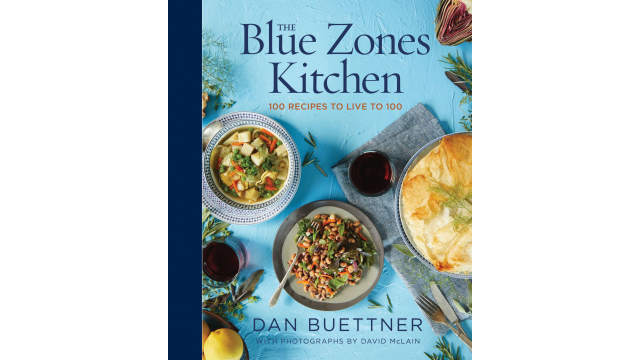Nutrition for Brain Health

Here’s some food for thought: the brain is the highest energy consuming organ in the human body.
Our brain functions even when we are asleep. It works without holidays, demanding high-quality reserves of energy to remain sharp and effective.
According to biochemist and James Beard Award-winning cookbook author Shirley O Corriher, “We actually owe the size of our brains to cooking.” She explains that in human evolution cooking helped soften foods and offer more energy to the brain which made the Homo erectus develop bigger brains. And the human brain absorbs 20 to 25 percent (some 350-450 calories) of the energy directly from the food we consume. Research also points out that the brains of children consume nearly 50 percent of the energy they need for healthy development. Hence, the emphasis on offering the best nutrient-dense foods for children.
The Hungry Brain
The food we eat provides the raw materials that the brain uses to produce energy, build new cells, repair damaged ones, and carry out other essential functions. The brain is also highly sensitive to changes in the levels of certain nutrients, and deficiencies in these nutrients can lead to cognitive impairment, mood disorders, and other problems.
Experts talk of “brain foods” that contain specific nutrients shown to have benefits on brain health. For example, omega-3 fatty acids, which are found in fatty fish, walnuts, and flaxseeds, are essential for the proper functioning of brain cells and can help reduce inflammation, which is thought to contribute to many brain disorders. B vitamins, such as B6, B9 (folate), and B12, are important to produce neurotransmitters that are involved in mood regulation and cognitive function. Nuts are rich in healthy fats, antioxidants, and vitamin E, which support brain function, enhance memory, and protect against cognitive decline. Antioxidants, which are found in brightly colored fruits and vegetables, can help protect the brain from damage caused by free radicals.
Eating a balanced diet that includes a variety of whole foods can help ensure that the brain is getting the nutrients it needs to function properly. In contrast, a diet high in ultra-processed foods, sugar, and unhealthy fats can lead to neuroinflammation, oxidative stress, and other problems that can negatively impact brain health.
Research has established connections between mental health and the vagus nerve and gut-brain axis. Hence adding prebiotic foods like artichokes, onions, garlic, and legumes to our meals is important for boosting brain health. Fermented foods like kimchi and sauerkraut add probiotics to your meals. Brainy food is delicious too.
Nutritionist and dietitian Keri Romerdahl says, “The vagus nerve is the primary nerve gut bacteria utilize to transmit messages to the brain. Therefore, optimizing gut health is very important for assuring optimal mental states. One way to implement this is to make sure we are in a calm and peaceful state when eating. If not, taking 3 deep breaths prior to eating can help to activate the parasympathetic nervous system to assure optimal digestion of our meals.”
Peter Barrett makes sauerkraut
Here are some food factors and ingredients that can have a significant impact on brain health:
• Omega-3 fatty acids: Omega-3 fatty acids are important for brain health, as they help support the structure and function of brain cells. Good sources of omega-3s include fatty fish like salmon and sardines. Plant-based nutrition includes walnuts, flaxseeds, and chia seeds.
• Antioxidants: Antioxidants can help protect the brain from damage caused by free radicals, which are unstable molecules that can harm cells. Good sources of antioxidants include brightly colored fruits and vegetables, such as berries, leafy greens, and cruciferous vegetables like broccoli and cauliflower.
• B vitamins: B vitamins, particularly B6, B9 (folate), and B12, are important for brain health, as they help support the production of neurotransmitters that are involved in mood regulation and cognitive function. Good sources of B vitamins include leafy greens, legumes, and whole grains.
• Caffeine: Moderate caffeine intake has been shown to improve cognitive function and alertness. Good sources of caffeine include coffee, tea, and dark chocolate.
• Curcumin: Curcumin is a compound found in turmeric that has anti-inflammatory and antioxidant properties. It may help improve brain function and reduce the risk of cognitive decline.
• Healthy fats: Consuming healthy fats such as monounsaturated and polyunsaturated fats, including olive oil, avocado, nuts, and seeds, can help support brain health by promoting healthy blood flow and reducing inflammation.
• Low-glycemic index carbohydrates: Foods that are low on the glycemic index, like whole grains, fruits, and vegetables, release glucose into the bloodstream slowly, providing a steady source of energy to the brain, without the sharp spikes and crashes that come with high glycemic foods.
In addition to these food factors, it is also important to stay hydrated and limit or avoid alcohol and other harmful substances that can negatively impact brain health.
Feeding the Grey Cells
According to the WHO, “By 2030, one in six people in the world will be aged 60 or over”. As a significant percentage of the population around the world turns grey, healthy longevity is gaining importance.
Dan Buettner, whose remarkable discovery of the Blue Zones Diets — eaten by certain populations who live exceptionally long and healthy lives says, “It is essentially whole foods, plant-based diets – greens, grains, nuts and beans,” that people consumed in the Blue Zones that played a pivotal role in their good health, including excellent cognitive function beyond the age of a hundred.
Therefore, eating a healthy, balanced diet is essential for maintaining optimal brain function and preventing cognitive decline. Australian senior and culinary icon Maggie Beer explains how brain foods play an important part in the battle against dementia among the elderly. She says, “As we age, we need different levels of nutrition to keep our bodies healthy.” Add more protein, leafy greens, and vegetables of all colors, she advises.
A hearty vegetable kenchin jiru by Naoko Takei
Experts list the diseases and conditions connected to brain health that can affect the elderly and how the right diet can help in building a nutrient safety net for our bodies. Here are a few:
- Alzheimer's disease: Alzheimer's disease is a progressive brain disorder that affects memory, thinking, and behavior. There is evidence that a healthy diet can help reduce the risk of developing Alzheimer's disease. Following a Mediterranean-style diet, which emphasizes fruits, vegetables, whole grains, fish, and healthy fats like olive oil and nuts, has been shown to help reduce the risk of Alzheimer's disease.
- Parkinson's disease: Parkinson's disease is a progressive neurological disorder that affects movement and can also lead to cognitive decline. There is some evidence to suggest that a diet rich in fruits, vegetables, and whole grains may help reduce the risk of Parkinson's disease. In addition, certain nutrients, such as vitamin D, vitamin E, and omega-3 fatty acids, may help protect the brain from damage and slow the progression of Parkinson's disease.
- Depression: Depression is a mood disorder that can affect cognitive function and overall brain health. There is evidence that a healthy diet, such as a Mediterranean-style diet or a diet high in fruits and vegetables, can help reduce the risk of depression. In addition, certain nutrients, such as omega-3 fatty acids, vitamin D, and B vitamins, may help improve mood and reduce the risk of depression.
- Stroke: A stroke occurs when blood flow to the brain is interrupted, which can lead to brain damage and cognitive impairment. There is evidence that a healthy diet, like the aforementioned Mediterranean-style diet, can help reduce the risk of stroke. In particular, a diet high in fruits, vegetables, whole grains, and lean protein, and low in saturated and trans fats, can help reduce the risk of stroke.
Eating a diet that is high in fruits, vegetables, whole grains, and healthy fats, and low in processed foods, sugar, and unhealthy fats, can help reduce inflammation, protect against oxidative stress, and support overall brain function.
Beer says the way to eat right for good brain health doesn’t begin as we age but “starts early from childhood.” Make sure then that brain foods are a part of your daily meals.
Key Takeaways
- Plant foods may reduce dementia risk.
- Inflammation affects brain health.
- Sharpen memory with brain-healthy foods.





